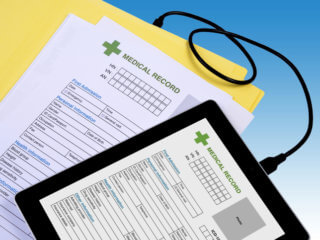Healthcare is one of the largest growing sectors in India. It consists of hospitals, clinics, outsourcing centres, telemedicine, insurance companies & the government. [1] Regulatory & Policy framework for hospitals and clinical establishments in India will further strengthen the robust growth of Indian healthcare system in coming years.
Indian healthcare sector is increasing at a rapid pace with strengthening scope, availability of affordable services and the amount of investment coming from both public and private players. Healthcare Information Technology market which esteemed at US$ 1 billion presently is predicted to grow 1.5 times by 2020.
However, several hurdles need to be addressed in delivering access to quality and affordable healthcare in the country. The primary challenge for healthcare companies in India is to medical devices or applications that are cost competitive as well as useful to increase penetration, particularly in rural areas. So with this market, there are many opportunities for new establishments in the medical sector.
The existing law in the healthcare sector has a regulatory provision under three separate authorities
- Medical Council: The Medical Committee/Council of India and the individual state Councils have to regulate medical education and professional medical practice. Beyond recognizing the medical institutions, Medical Council does not deal with the physician or practitioner, unless some accusations rendered, and a prima-facie complaint is raised.
So the national body of medical council presently concerns itself with only recognizing and de-recognizing medical institutions whereas the State agencies operate only as registers for circulating a license to practising professional or business. - Local bodies: The Local Bodies like Municipal bodies have the authority to give a permit to set-up a nursing home or hospital and regulate its functions. However, in spite of the Act, local agencies don’t perform other functions apart from providing a certificate to a nursing home or hospital.
- Food and Drug Administration (FDA): The Food and Drug Administration (FDA) has the authority to control and regulate the budding manufacturers and dealing sales of pharmaceutical products, services. It is one authority which has been granted several rights by the law.
Clinical Establishment Act must be applied for registration of private healthcare facilities like hospitals, only doctor Foundation, medical laboratories and diagnostic centres. The government of India commanded the Act with the purpose of providing the registration and regulations of clinical establishments in India and other related matters.
Bill mentions the creation of a Council named The National Council for Clinical Establishments and is primarily accountable for setting up standards for assuring proper health care by the clinical facility and creates the minimum standards and their periodical review.
| Recommended for you | |
| Regulatory and policy framework for medical devices in India | |
| Role of policy in guiding digital health revolution | |
| Pharmaceutical companies and digital health India |
Clinical establishments in India and approach for registration new medical enterprises
Section 11 of the Act compels that no person or institute shall run a clinical facility unless it has duly registered in agreement with the provisions of the Act.
The government of India, the Ministry of Health and Family Welfare published the Application format for Permanent Registration of Clinical Establishments which demands the applicant to provide information such as facility information, types of service, a method of medicine, etc.
Minimum principles to be followed by medical establishments
Furthermore, Section 12 of the Act lays out Clinical Establishment shall fulfill the conditions for registration and continuance, they are:
- The minimum standards of amenities and services.
- The minimum personal criteria (Management, Employees, etc.).
- Terms for services of medical records and reports.
- Other conditions as advised.
The minimum standards for hospitals are executed by a level of health care provided by such hospitals.
In September 2014, the National Committee for Clinical Establishments had prepared following blueprint and documents with the purpose of implementation of the Clinical Establishments Act:
- Application format for Permanent Enrollment of Clinical Establishments
- Minimum Criteria
- Arrangements for accumulation of information and statistics
- Template displaying various rates
- Standard Treatment Directions of Ayurveda Accordingly, the draft issued by the Government splits hospitals into four levels. These levels are:
- Hospital 1: These the primary health care services provided by qualified physicians.
- Hospital 2: These include services of Surgery and Anesthesia in addition to the services provided at level 1 through the registered practitioner.
- Hospital 3: These include all the services provided at level 1 and 2 and also the Multi-specialty clinical care with separate departments of General Dentistry, Intensive Care Unit, etc.
- Hospital 4: These include all the services provided at level 3. It will, however, have the distinction of being teaching and training institutes. [2]
Template for display of rates
The Hospitals are required to obey a particular model for display of the different rates related to PD, Research /diagnostic, emergencies, etc. which is elaborated further in the blueprint and other documents issued by the Ministry of Health.
Licenses and certificates required by a hospital
A hospital authority should be aware of the licenses or certificates that are fundamentally needed and to revive them as and when required.
| 1. Registration under societies registration act |
| 2. Inspection for electrical installation/sub station |
| 3. NOC from local municipal office for any bye-law |
| 4. License for storage of petrol/diesel on form XV under the petroleum rules 2002 |
| 5. Income tax exemption certificate |
| 6. NOC from Delhi fire services |
| 7. Registration for operation of X-ray machinery with AERB |
| 8. Drug License for medical store, IPD pharmacy, OPD pharmacy |
| 9. License to operate blood bank under Rule 122G of drug and cosmetic act |
| 10. Registration under PNDT Act 1994 |
| 11. Income tax registration or PAN (Permanent Account Number) |
| 12. Registration for VAT or Sales tax |
| 13.Registration for EPF |
| 14. Registration for ESI coverage of employees |
| 15. Registration under Rule 34, sub-rule (6) of MTP Act 1971 |
| 16. Registration under Delhi Nursing Home Act 1953 |
| 17. Indemnity insurance policy |
| 18. Standard fire and special perils policy |
| 19. Authorization for formation of BMW under BMW handling rule 1996 |
| 20. License for operating lift under Section 5 and 6 and Rules 4 and 5 |
Furthermore, Clinical Establishment Ace is only relevant in states like Arunachal Pradesh, Uttarakhand, Rajasthan, Bihar, Jharkhand, Himachal Pradesh, Uttar Pradesh, Mizoram, Sikkim and all Federalist’s Regions except the NCT of Delhi. [3]
Regulatory framework for digital health
We have no dedicated online pharmaceutics, telemedicine, digital health, m-Health, data security, privacy and other related technical legal framework in India as on date. With India’s dynamic initiative on development and implementation of digital health (eHealth) solutions, there needs to be the framework for communication between different stakeholders and regulations.
Nonetheless, some positive initiatives are being taken by governments in India. For instance, the Electronic Health Record (EHR) Standards of India is suggested along with a proposal for establishing a National E-Health Authority (NeHA) of India. Furthermore, if we remove the flaws in Digital India project, then the same can be used for digital health objectives as well. As of now, there is no mandatory obligation to provide e-delivery of services in India, and this is sufficient to avoid the same.
India is yet to start acting on these aspects on the fronts of technology and legal frameworks. But there are reports that the Health Ministry of India has planned out a detailed e-health project under Digital India program of the government. The project would include hospitals, electronic exchange of health record, online distribution of solutions, citizen portal, online monitoring procedures for services and others.
Image credit: www.istockphoto.com

















